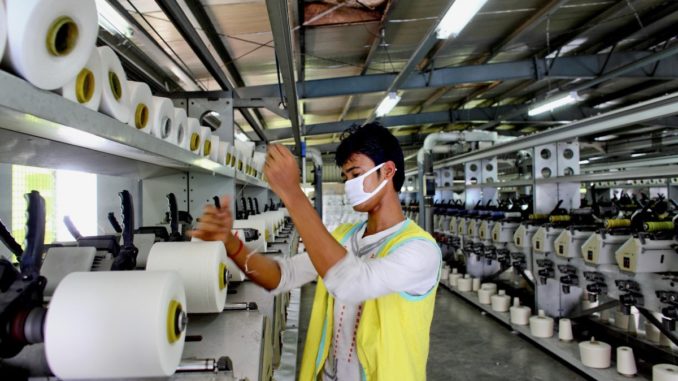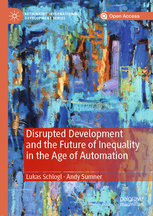
The Covid-19 crisis impacts the way we work and the technologies we use. It will have lasting effects on Global Value Chains, robotization and the structure of employment. A new book helps us understand the underlying long-term trends.
Unemployment is surging, public debt is up, and poverty is back. These are some of the most visible developments triggered by the current Covid-19 pandemic. Once lockdowns are lifted in due course and the labour market recovers, what will remain from the crisis?
The Covid-19 pandemic accelerates long-term developments that have been unfolding for some time: digitization and tele work, the gig economy, e-commerce, the cashless economy, autonomous systems and robotization. These developments are now on a fast track. While many firms are struggling, others thrive in such an environment: Microsoft reports a record usage of its collaborative ‘Teams’ software, Zoom saw a big hike in its share price, Amazon is hiring hundreds of thousands of new warehouse operators. Firms and organisations are racing to meet the demand for online activities and are investing heavily in technological infrastructure.
Disrupted Development on steroids?
China illustrates the global ramifications of the current crisis. Not only are robots and drones used in pandemic control; Chinese firms rush to automate due to staff shortages and public health regulations. In a crisis like this, humans are vulnerable while machines are immune. Kaushik Basu, the World Bank’s former chief economist, therefore worries about Covid-19 causing a “technological shift” which further weakens the bargaining power of labour – on top of decades of falling labour shares.
Corona also lays bare weaknesses in the global division of labour. A dwindling capacity in Europe to produce basic medical supplies from ventilators to protective equipment has led to dangerous shortages. Previously, economic interdependence was thought to be the way to prosperity and peace. But calls for national self-sufficiency in key industries are inevitable in a time in which Western countries depend on rescue packages from China and Russia. “Taking back control” of strategic production will thus become a political slogan post Corona.
A trend towards de-globalisation and threats to the export-oriented development model were evident even before the pandemic: In a new open-access monograph, Andy Sumner and I discuss trajectories in the global future of work against the background of technological change. We speak of a growing “robot reserve army” which pushes deindustrialization and reshoring – and thus ‘disrupts’ development. Covid-19 further empowers the robot army.
The Pandemic Precariat
Who are the losers in the post-Pandemic world? It is disadvantaged groups who are excluded from the digital economy, be it due to a lack of access or due to a lack of skills and equipment. Those working in low-skilled, automatable routine jobs with regular customer contact––from checkout operators to ticket sellers––will be at risk of losing their job due to tighter public health regulations of face-to-face interactions. Now, more than ever, terminals, robot call centres, and apps will take over such tasks.
The Corona crisis is thus forcing the automation of interpersonal services which have long been considered a last safe refuge for low-skilled human labour. And, finally, it is workers in developing countries with weak social protection and public health systems where unemployment insurance is a luxury who suffer. For them, Covid-19 has opened a ‘pandemic’s box’.

Lukas Schlogl is a social scientist at the Department of Political Science, University of Vienna. His new book with Andy Sumner, ‘Disrupted Development’, examines the future of inequality, work and wages in the age of automation with a focus on developing countries. The authors argue that the rise of a global ‘robot reserve army’ has profound effects on labor markets and economic development. You can download it here.

